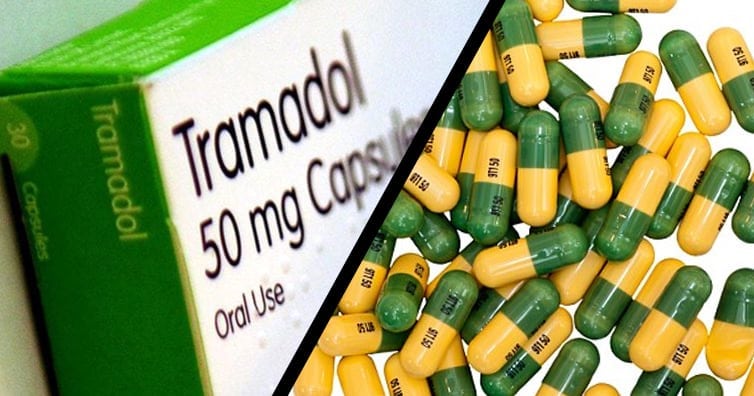In this article, I’m going to set the record straight and answer the question Is tramadol an opiate? I’ve corresponded with a superabundance of individuals that stated they were prescribed tramadol from a doctor and never told it was an opioid.
I remember one patient, in particular, I had at the Opiate Treatment Program (OTP) where I worked as a counselor.
This gentlemen came in for his intake with me and stated that he had been getting as much prescribed tramadol as he wanted for years for his back pain from the military, as he was a veteran.
He stated that the military “handed tramadol out like candy.”
Unfortunately for him (and many others)…
Tramadol daily use can lead to physiological and even psychological dependence and addiction.
Here are the real truths and nothing but the truths about this painkiller that appears to confuse even doctors and not just patients…
Is Tramadol an Opiate? – The Truth About Tramadol
Tramadol (sold under the trade name Ultram) is a prescription medication used to treat mild to severe pain. Contrary to popular belief, tramadol is NOT an opiate, because it does not come from the opium poppy plant. Furthermore, tramadol will not show up as an opiate on a drug test.
So how exactly does tramadol work?
Tramadol is a centrally acting synthetic analgesic agent with opiate activity due to a low-affinity binding of the parent compound and higher affinity binding of the O-demethylated metabolite M1 to mu opioid receptors.
So basically, tramadol is a synthetic (man-made) drug that has opiate effects (pain relief, constipation, euphoria, respiratory depression, etc.) due to it binding to the same opioid receptors in the brain and body that opiate drugs like morphine and codeine bind to.
However, for several decades tramadol was not scheduled as a controlled substance by the United States Drug Enforcement Agency (DEA).
It wasn’t until a couple of years ago that the DEA added tramadol to the list of controlled substances.
I guess “better late than never” right?
Many doctors and other professionals didn’t learn the truth about tramadol’s addictive abilities until countless individuals had suffered negative consequences from taking this drug long-term.
Tramadol can lead to the following negative consequences:
- Physiological Dependence
- Addiction
- Tramadol Withdrawal
Tramadol withdrawal is no walk in the park. Since tramadol fills mu opioid receptors in the brain, coming off tramadol can result in opioid-like withdrawal symptoms.
Tramadol also inhibits the reuptake of serotonin and norepinephrine, so coming off tramadol can also induce symptoms similar to withdrawal from Selective Serotonin Reuptake Inhibitor (SSRI) and Serotonin Norepinephrine Reuptake Inhibitor (SNRI) drugs.
Tramadol Withdrawal
And it’s for these reasons, my friend, that coming off tramadol can be such a nightmare.
Though you’re only coming off one medication, depending on the tramadol dependence severity (dosage and length of use, unique biochemistry, physical and psychological health, age, and other drugs you might be taking), you could be prone to the following list of tramadol withdrawal symptoms in varying magnitudes:
Opioid Withdrawal Symptoms (Typical):
- Anxiety
- Depression
- Insomnia
- Fatigue
- Sore and aching muscles and limbs
- Restless Leg Syndrome (RLS)
- Diarrhea
- Gastrointestinal (GI) distress
- Nausea
- Sweating, hot and cold flashes
Note: Most of these opioid withdrawal symptoms are typical in varying degrees in most people coming off tramadol. Usually (though not always) the magnitude of tramadol withdrawal symptoms severity is directly proportional to the tramadol dependence severity.
SSRI and SNRI Drug Withdrawal Symptoms (Atypical):
- Electric shock feelings
- Psychosis
- Paranoia, anxiety, and panic
- Emotional instability
- Dizziness
- Agitation
- Insomnia
- Fatigue
- Confusion
- Hypomania
These two lists accurately portray the most common (though not all) of the possible tramadol withdrawal symptoms.
As you can see, some of the symptoms from these two lists are identical, therefore, it can be difficult to ascertain whether or not you’re actually experiencing the atypical symptoms caused by the immediate cessation of SSRI and SNRI drugs, or merely the typical opioid withdrawal symptoms.
Note: If you’re coming off a high daily dose of tramadol, your chances of experiencing atypical symptoms are greater than someone who has used a low dose for a short period of time. Ultimately, the type of tramadol withdrawal you will likely experience is based on varying severities of dependence and biochemical uniqueness.
Is Tramadol an Opiate? – Key Concepts
Tramadol is an effective painkiller drug with lots of potential benefits (eg pain relief, antidepressant) but it’s also really good to know exactly what it is you’re taking.
It’s also important to know the possible negative consequences of taking tramadol.
The following key concepts will sum up the information we’ve covered:
- Tramadol is not an opiate, though it is an opioid agonist, which simply means it binds to the same receptors that opiates bind to, causing opiate-like effects.
- Tramadol is a controlled substance and prescription painkiller that treats mild to severe pain.
- Tramadol daily use can lead to dependence, addiction, and withdrawal.
- Tramadol withdrawal may lead to opioid withdrawal symptoms and antidepressant withdrawal symptoms as well, due to tramadol having the SNRI mechanism of action.
- For several decades tramadol was not a controlled substance and flew under the radar as an addictive and dangerous drug, but a couple of years ago the DEA added it to the list of controlled substances.
Additionally, for people that don’t take tramadol but instead take other opioids daily, using low-dose tramadol short-term can be an effective opiate withdrawal remedy. If you’re interested in this you can check out my article called How To Use Tramadol For Opiate Withdrawal.
If you have any comments or questions regarding the question Is tramadol an opiate please post them in the comment box below.







I knew Tramadol acted like opiates and what takes me back is one of my dogs has a torn ligament and can only be (possibly) repaired with surgery. My Veterinarian prescribes several medications for him with Tramadol being one of them. My dog needs 3 + Tramadol pulls a day and out bet refills it without question. I asked if my dog can get addicted and he said they haven’t seen it much in dogs yet high doses for a long period they have seen a couple cases.
My point is this: If this RX was for a human there would be strong guidelines but for a dog it appears that the FDA, & DEA could care less. What an unusual set of laws we have.